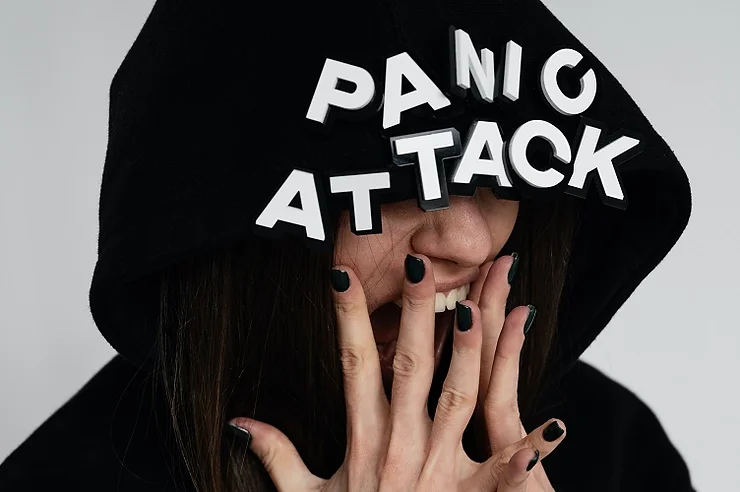Practical Steps to Regain Control and Find Relief
Living with anxiety can be exhausting. For those who experience panic attacks, the challenge can feel even more intense—like your body is hijacking your ability to feel safe, grounded, and in control. If you’ve ever felt overwhelmed by fear, shortness of breath, dizziness, or a racing heart, you’re not alone. Panic attacks affect millions of people worldwide, but the good news is: they are manageable, and there is hope.
Whether you’re looking for ways to prevent panic attacks or navigate them when they strike, this guide offers practical tips and grounding strategies to help you feel more empowered in your mental health journey.
What Is a Panic Attack?
A panic attack is a sudden episode of intense fear or discomfort that triggers severe physical reactions without any immediate danger. Symptoms can include:
-
Rapid heartbeat
-
Shortness of breath
-
Dizziness or lightheadedness
-
Sweating or chills
-
Chest pain
-
Tingling sensations
-
A feeling of detachment or losing control
Panic attacks often come on unexpectedly, but they can also be triggered by specific situations—like driving, being in crowds, or experiencing high stress. When panic attacks occur frequently, it may be a sign of Panic Disorder, a type of anxiety condition that is treatable with the right support.
How to Prevent Panic Attacks
While not all panic attacks are preventable, there are proactive steps you can take to reduce your risk and build long-term emotional resilience:
🧠 Prioritize Self-Care
-
Don’t overschedule: Give yourself time to rest and recharge.
-
Exercise regularly: Physical movement helps reduce stress and anxiety.
-
Eat nutritious meals: Avoid blood sugar crashes that can mimic panic symptoms.
-
Get enough sleep: Poor sleep can increase anxiety levels.
☕ Avoid Common Triggers
-
Limit caffeine and alcohol: Both can increase heart rate and anxiety symptoms.
-
Say no to recreational drugs: These can destabilize your nervous system and contribute to panic.
🌿 Monitor Stressors and Adjust Accordingly
Identify patterns in your anxiety. If certain tasks, people, or situations increase your stress, explore healthy boundaries or alternative coping mechanisms.
🛣️ Modify Triggering Situations
If specific scenarios (e.g., driving on the freeway) tend to cause panic, seek out alternatives. Use GPS settings to avoid highways or practice exposure therapy techniques with a therapist to slowly desensitize yourself to those fears.
What to Do During a Panic Attack
If you’re already in the midst of a panic attack, here are some techniques to help reduce its intensity and guide yourself back to calm:
1. Acknowledge What’s Happening
Recognize that this is a panic attack—not a heart attack or something worse. You are not in danger, and this feeling will pass.
2. Focus on Your Breathing
Inhale slowly for 4 seconds, hold for 4 seconds, and exhale for 4 seconds. Controlled breathing helps calm the nervous system and reduce hyperventilation.
3. Use Medication if Prescribed
If you have medication for anxiety or panic attacks, take it as directed by your doctor.
4. Try Grounding Techniques
Bring yourself into the present moment:
-
Name 5 things you can see, 4 you can touch, 3 you can hear, 2 you can smell, 1 you can taste.
-
Hold an object and focus on its texture and color.
-
Rub your hands together or place your feet firmly on the floor.
5. Close Your Eyes and Picture a Safe Place
Visualize a calming location—like a beach, forest, or your childhood home—to mentally escape the fear loop.
6. Repeat a Mantra
Use a reassuring phrase like:
-
“I am safe.”
-
“This feeling will pass.”
-
“I’ve gotten through this before, and I can again.”
7. Distract Yourself
Listen to music, doodle, read a passage from a favorite book, or play a simple game. Redirection helps your brain break the panic cycle.
Long-Term Strategies to Manage Panic Attacks
🧘 Learn Relaxation Techniques
Practice daily stress-reducing activities such as:
-
Deep breathing exercises
-
Progressive muscle relaxation
-
Mindfulness or guided meditation
-
Gentle yoga or stretching
👥 Seek Professional Help
If panic attacks are interfering with your life, therapy can help. A licensed mental health provider can help you:
-
Identify triggers and underlying causes
-
Develop a personalized treatment plan
-
Learn cognitive behavioral techniques (CBT) to reshape anxious thinking
Teletherapy is a great option if you prefer support from the comfort of home.
Remember: You Are Not Alone
Having panic attacks does not mean you’re weak. It means your body is responding to stress in a heightened way—and you can learn how to manage those responses. With practice, support, and patience, you can reduce their frequency and intensity, and regain confidence in your daily life.
When to Seek Help
Reach out to a mental health professional if:
-
Panic attacks are frequent or severely impact your quality of life
-
You avoid certain activities or places out of fear
-
You experience feelings of hopelessness or depression alongside anxiety
At 3CS Counseling Center, we’re here to help you regain control.


